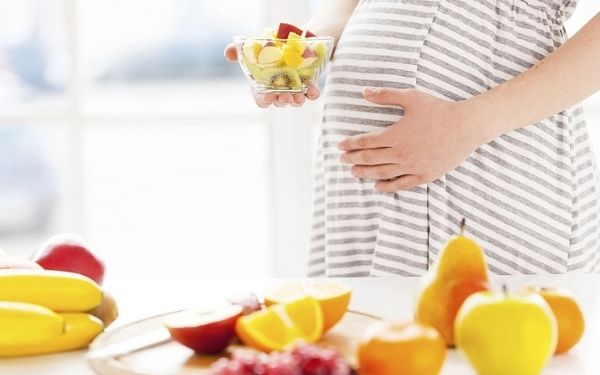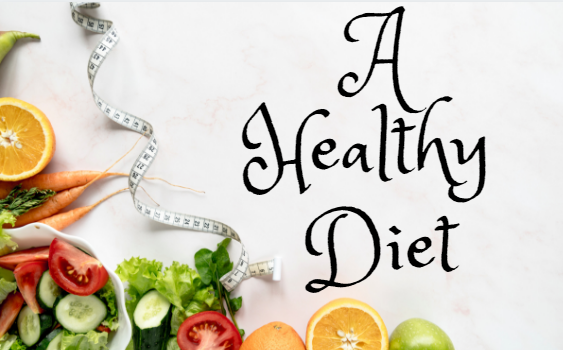What nutrition a woman takes during pregnancy is her baby’s main source of nourishment. A pregnant woman needs more healthy diet such as calcium, folic acid, iron and protein than a woman who is not expecting.
Nutrition In Pregnancy | What To eat
Folic acid
It’s active form is folate when the nutrient is found in foods. It is a B vitamin that Is important in preventing birth defects in the baby’s brain and spinal cord, known as neural tube defects.
Diet alone can not meet the requirements of folic acid for pregnancy. For that reason the March of Dimes recommends the daily intake of vitamin should have 400 micrograms of folic acid for one month before becoming pregnant.
During pregnancy, the amount of folic acid intake should be increased upto 600 micrograms that is already contained in prenatal vitamins.
Food sources
• leafy green vegetables
• fortified or enriched cereals
• ,breads and pastas
• beans
• citrus fruits
Calcium
Daily Intake
Pregnant women age 19 and over need 1,000 milligrams of calcium a day pregnant women between ages 14 to 18, need 1,300 milligrams daily.
Functions In Body
Endogenous and exogenous calcium is used to build a baby’s bones and teeth. According to the Academy of Nutrition and Dietetics, if a pregnant woman does not consume enough calcium, the mineral will be drawn from the mother’s stores in her bones and given to the baby through placenta to meet the extra demands of pregnancy.
Vitamin D
Dairy products are fortified with vitamin D that works with calcium to develop a baby’s bones and teeth. Moreover, vitamin D is necessary for the function of calcium in making bones and skeleton of the fetus.
Food sources
• milk
• yogurt
• cheese
• calcium-fortified juices and foods
• sardines or salmon with bones
• some leafy greens (kale, bok choy)
Iron
Daily intake
According to ACOG, a pregnant woman should take double amount of iron a day as compared to the women who is not expecting i.e 27 milligrams/day
Function
Increased intake of iron during pregnancy is needed to make more blood to supply the baby with oxygen.
Iron Deficiency
Iron Deficiency during pregnancy can cause anemia. It is a condition that results into fatigue and increases the risk of infections. Anemia means blood deficiency, there is decreased amount of red blood cells inside the blood and red blood cells are needed to take oxygen to the tissues. And due to this, baby will be ischemic.
Vitamin C
For great increase in the absorption of iron, consider a good source of vitamin C with same food when eating iron-rich foods, ACOG recommended diet plan. For example, a glass of orange juice at breakfast with an iron-fortified cereal.
Food sources
• meat
• poultry
• fish
• dried beans
• peas
• iron-fortified cereal.
Protein
Like other Nutrients, increased intake of protein is needed during pregnancy. Because protein is “a builder nutrient,”as it helps to build important organs for the baby, such as the brain aand heart.
Food sources
• meat
• poultry
• fish
• dried beans and peas,
• eggs
• nuts
• tofu.
Food To Take During Pregnancy
Fruits and vegetables
During the second and third TRIMESTERS a pregnant women should particularly focus on fruits and vegetables. These colorful fruits and vegetables are low in calories and filled with fiber, vitamins and minerals.
Whole grains
Make whole grains a part of your nutrition during pregnancy. These grains are an extremely important sources of energy for a pregnant body. Besides this, they provide the body with extra vitamin B and fibers. As well as, almost half of the carbohydrates needed by a pregnant should come from such grains, such as
• oatmeal,
• whole-wheat pastao
• breads and brown rice.
Dairy Products
Dairy products provide the body woth calcium, proteins and vitamin D. At least 3 to 4 servings per day of dairy products are must for a healthy pregnancy.
Vitamin Supplements
Some vitamins and nutrients are needed to be taken through vitamin supplements for example iron and folic acid. Because alone healthy diet can not fulfill their requirements during pregnancy.
Chewable vitamins product labels should be checked before use because some of them might not contain the levels required.
Food To Limit In Pregnancy
1-Caffeine
Consumption of less than 200 milligrams of caffeine that is equal to one 12 – ounce cup of coffee is considered to be safe during pregnancy, according to a ACOG committee opinion Moderate amount of caffeine consumption during pregnancy does not appear to be the cause of miscarriage or premature birth.
2-Fish
Fish is a good source of lean protein. But many different types of fish have different impact on body depending on the type and quantity of nutrients and heavy metals they contain.
• some fish, including salmon and sardines, contain omega-3 fatty acids, a healthy fat that’s very good for the heart.
• 8 to 12 ounces of cooked fish and seafood a week are safe for a pregnant women according to ACOG.
• Fish like albacore or “white” tuna, containing high levels of mercury, should not exceed 6 ounces a week, according to ACOG.
• Mercury metal can be harmful to a baby’s developing brain. Canned light tuna is safe to eat during pregnancy as it has less mercury than albacore “white” tuna.
Foods To Avoid
1-Alcohol
Avoid alcohol completely during pregnancy. It should not be a part of your pregnancy nutrition chart. Alcohol pass directly from mother to fetus through placenta.
Use of alcohol and beverages during the trimesters have devastating effects on the developing fetus. It can also lead to Alcohol Overuse Syndrome, effecting the baby both physically and mentally, changing the behavioral patterns of the baby.
2-Fish with high levels of mercury
Seafood such as
• swordfish,
• shark, king mackerel,
• marlin,
• Orange
• tilefish are high in levels of methyl mercury,
Besides this, Methyl mercury is a toxic chemical that can pass through the placenta and is harmful to an unborn baby’s developing brain, kidneys and nervous system.
3-Unpasteurized food
• Pasteurization involves heating a product at a high temperature to kill harmful bacteria and toxins.
Two types of infections are possible due to intake of unpasteurized food.
• LISTERIOSIS caused by the Listeria bacteria
• Toxoplasmosis, an infection caused by a parasite.
According CDC, Listeria infection can lead to miscarriage, stillbirth, preterm labor, and illness or death in newborns.
Unpasteurized foods include
• Raw milk and foods
• Store-bought deli salads, such as ham salad, chicken salad, tuna salad and seafood salad.
• Refrigerated meat spreads or pates that did not undergo through pasteurization.
4-Raw meat
Uncooked and raw meat contain a toxin TOXOPLASAMA GONDII which can cause Toxoplasma infection.
A mother can pass this infection on to her baby, which can cause problems such as blindness and mental disability later in life.
Pregnant women should avoid raw foods like
• Under-cooked meats and poultry.
• Fish, like sushi, sashimi, ceviches and carpaccio.
• Shellfish, such as clams, mussels, oysters and scallops.
Also, some infections are caused by E. Coli bacteria that are transmitted by intake of following raw foods
• Soft-cooked, runny or poached eggs.
• Foods containing under-cooked eggs, such as raw cookie dough or cake batter, tiramisu, chocolate mousse, homemade ice cream, homemade eggnog, Hollandaise sauce.
• Under-cooked sprouts, such as alfalfa, clove.















0 Comments